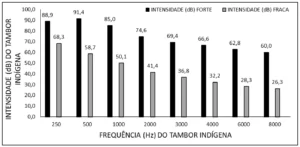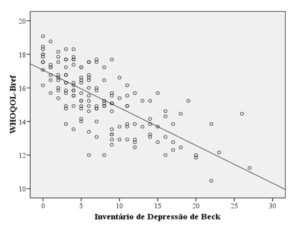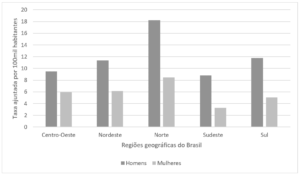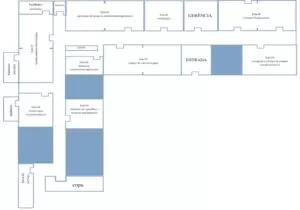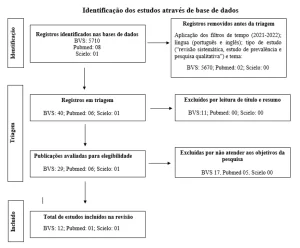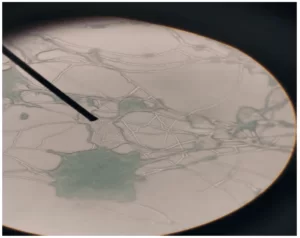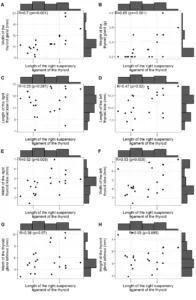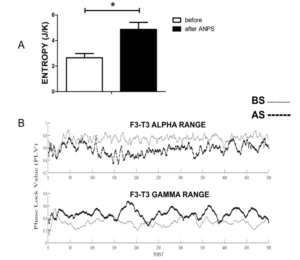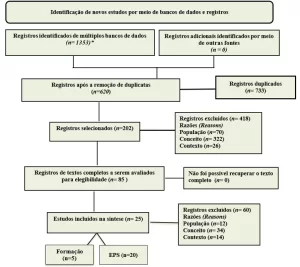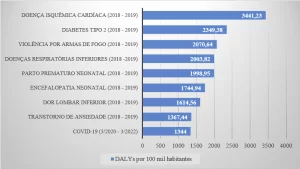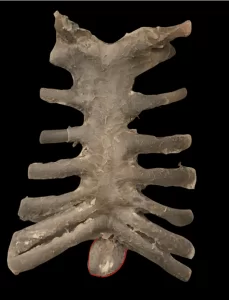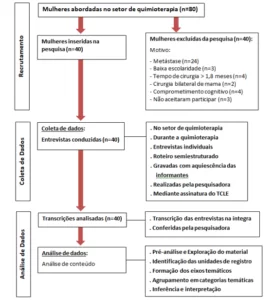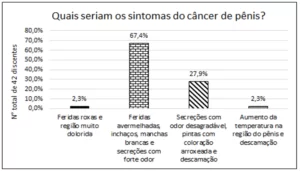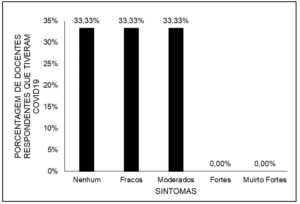SANTOS, José Ribeiro dos [1]
SANTOS, José Ribeiro dos. The Understanding of nurses On the collection and donation of organs and tissues for transplant. Multidisciplinary Core scientific journal of knowledge. Year 01, Ed. 01, vol. 11, pp. 175-182. December 2016. ISSN: 2448-0959
Summary
This paper outlines some considerations about the responsibilities that the nurse outside the transplant process. On the basis of the existing legislation in the country and the available literature. Highlight the ethical aspects and the importance of the nurse by the multidisciplinary team and society. In addition, it is necessary to empower the process of transplant professionals and formal education, promoting clarifications and discussions regarding the donation of organs for transplant. The objective was to analyze the nurses ' understanding according to the scientific production in the period from 2001 to 2010, referring to the problem. The method adopted was integrative literature review. The results show the need for enhancements, continuing education measures between these professionals and a broad approach to the theme. It is concluded that; Despite the increase in the number of organ transplants carried out, yet there is little literary production that describe and validate the results of the assessment of knowledge of nurses about the transplant process. Thus, this study shows that it takes investment in scientific production, involving complex aspects, to intensify and enhance the level of knowledge development of nurses involved in the process of raising and transplanting organs to better elucidate the question.
Keywords: Organ Donation, Transplant legislation.
1. Introduction:
The fantastic development of medical technology, in particular in the last 40 years, brought as a result of the increase in life expectancy which in your time, influenced the population growth with reflexes in various other social and economic aspects and has had a material impact on prevalence of chronic degenerative diseases, many of them without alternative treatment that is not an organ or tissue transplant (KENNETH .2010)
Potential donor PD; e)-family Interview when identifying a potential donor in the intensive care unit or emergency room, there is the requirement for compulsory notification to the Notification Center and distribution of organs and tissues (MATTIA .2010).
Notification of a potential donor's obligation laid down in law mandatory notification CNCDO, decentralised OPOs, is made via phone call to CNCDO by PS professionals or the ICU. The (CNCDO) passes the notification (OPO) search Organization of organs, which in your time evaluates the clinical conditions of the potential donor, such as age, cause of brain death time of the diagnosis of brain death. (CINQUE, 2010).
To understand more broadly the difficulties involved in the process of organ donation, is essential knowledge about the exact reasons for the scarcity of organs is the main limiting factor of the increase in the number of surgeries performed. The grief of transplantations be based on technical procedures with a great technological advancement, cannot occur without an organ donor (MAGELLAN, 2011).
The activity of organ and tissue transplantation in Brazil started in the year 1964 in Rio de Janeiro and in the year 1965, in the city of São Paulo, with first two kidney transplants in the country, the first heart transplant took place also in town of Sao Paulo in the year 1968, carried out by the team of Dr. Euriclides de Jesus Zerbini. Having the receiver survived 28 days. This fact occurred less than a year after the transplant Pioneer Dr. Christian Bernard, in South Africa (SUNDAY, 2010. .2011 BUTTONS).
Legislation:
The Brazilian legislation on organ donation has been suffering intense modification in recent years the first law, passed in 1968, had the ability to launch the discussion on the behavior of people in front of the organ donation (DALBEN .2010). According to the Official Gazette (2008), the brazilian legislation that governs on the donation of organs and tissues, whereas the provisions of law n° 9,434 of 4 February 1997 in the Decree n° 2,268/97, all with respect about the removal of organs and parts of human body for the purposes of transplantation or tissue grafts, Decree n° 2,268 of 30 June 1997-regulates law 9,434 and creates the national Transplant Center (CNT) was responsible for centralizing all cases of brain death in the national territory through the technical record only and the notices and distribution of organs (CCNDOs). That law, however, suffered some alterations by law n° 10,211, in 2001 by the national register of donors, establishing the priority of donors in carrying out necropsy (Forensic Medicine Institute), in cases of violent death, returning to the family decision donation (donation allowed) and returning the obligatory judicial authorization for intervivos unrelated transplants.
Donors and recipients
The process of donation of organs and tissues for transplant is complex and made up of different stages. Begins with the identification of a patient in brain death (ME) and ends only with the conclusion of the transplant. To become a donor, it is necessary that the individual meets some basic requirements: meet well and in a good state of physical and mental health, have blood compatibility with the receiver, perform all the tests recommended for this type of surgery, be more than 21 years of age, have passed the immune study and be a volunteer. (CINTRA .2005)
The world literature reports the exponential increase in receptor stripe for the various organs as a universal issue, whose capture failure results in deaths by waiting for the organ that is not effective in a timely manner is required to carry out laboratory tests to confirm the compatibility between donors and recipients.
Barriers to organ donation not
Religious belief; The lack of understanding of the family; Mistrust and fear of assistance trade in organs for transplant; The non-acceptance of the manipulation of the body, the fear of family reaction; The absence or delay of the confirmation of the diagnosis of brain death, the mismatch of information conveyed to the family by the hospital staff, General questions about the picture of the patient and is reason to refuse the donation even if the family in life has requested to be accomplished the donation; The inadequacy of the donation process; Or even for not knowing the deceased patient's desire, expressed in life, not to be an organ donor, fear of loss of loved one, afraid of your family not being dead.
Concept of brain death.
The first design of brain death was developed by a group of French neurologist, the significance of apnea was recognized and described by Mollaret and Goulon in 1959, through a clinical condition called coma dépassé, situation in which a brain dead is in a living body.
The team needed to confirm brain death (ME), was established by Decree No. 97/2,268. The diagnosis should be performed by two non-medical transplant teams, one with specialization in neurology. The date and the time of death will be recorded at the time of the diagnosis of brain death (ME). The victims of violent death, after the removal of organs, shall be autopsiadas the diagnosis of brain death (ME) varies from country to country. In Brazil, the Federal Council of medicine, CFM Resolution No. 1,346/91, defines brain death as the total and irreversible brain functions, of known cause and established so indisputable. The diagnosis of (ME) a doctor conducts medical examinations that give the diagnosis of brain death (ME), the test includes a clinical examination evidencing the absence of brain reflexes, after 6 hours of observation, the second test by doctor neurologist that not part of the transplant team, the test includes blood flow examinations (cerebral angiography), or EEG, this test is to confirm the absence of blood flow in the brain.
Must pay attention during the clinical examination for body temperature (SAINTS .2005). Given what has been exposed, because it is a relatively new area for the nurse, sought in literature the understanding of this professional. The aim of this study is to analyze the understanding of nurses and the national scientific production in the period from 2001 to 2010, on the theme the understanding of nurses on the collection and donation of organs and tissues for transplantation.
2. MATERIALS AND METHODS
This is a literature review research, integrative. The study is a systematic review which consists of a scientific objective, technical efficient and reproducible, that represents a reflection on the importance of the actions of the professional nurse, before a potential organ donor. This research was intended to get the scientific literature to identify professional nurse understanding regarding the collection and donation of organs for transplant. Focusing on theoretical perspectives adopted, investigated the articles inherent to the subject between the years 2001 to 2010, through readings and fichamentos of texts. Initially check was made of the titles, authors and abstracts, in order to separate the repeated publications, then were teased all publications found and selected the articles inherent to the subject. The texts were selected for analysis because of the implications for practice that guides the nursing actions, with regard to the protocols and the care of a potential organ donor. The data will be stored in computer Word program 2013 and will be discussed in a qualitative approach.
3. Results and discussions
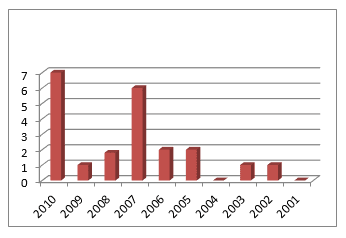
. Source: Drawn by the author. São Paulo, 2011
Of scientific articles found that were available in Portuguese language, the dates of publications, we can see in the figure above that the year of 2010 was the year that had the largest number of articles published with 7 publications, then the year of 2007 with 6 publications. Note-If a sharp swing from the year 2007 to 2010. Already in the year of 2001 and 2004 were not found items that fitted the theme. In the years 2002, 2003 and 2009 were found only one article is inherent in the subject.
It is necessary to emphasize that most of the published articles were drawn up by nursing professionals followed by medical professionals and other categories. The Brazilian Association of transplant believes that the scenario of all transplants patients doctors and donors are important, because there is no if donor transplant. According to Kenneth and Dimas et to the great challenge of the professional who works with organ and tissue uptake is to have ethical competence for continuous improvement. Already the author Matthias says that education continues to be among those professionals involved in the process of collection and donation of organs and tissues. Mathew in your study point to a poor and limited knowledge of professionals in relation to brain death. Although this deficiency of professionals in relation to the common process all that without the effective participation of the nursing front of singularities and peculiarities that involve the entire transplant process, we would not have achieved such results expressive and accepted by society.
Nursing won your space with responsibility and credibility with society, the Federal Council of nursing because of the high complexity that involves the transplantation process, according to the law on organ transplants in country, the COFEN Resolution N° 292/2004 determined and specified the duties of the nurse (plan, implement, coordinate, supervise and evaluate the nursing procedures to donors of organs and tissues. The theme about donation and transplantation of organs and tissues should be further disseminated among academia. Magellan points out that in the process of transplanting a donation is not an obligation but an option of each family member.
The fact that the negative of the donation of organs and tissues is the ignorance of the potential donor's wish. The lack of clarification and beliefs are also singled out as limiting factors of the donation of organs and tissues. Studies conducted by the author Sunday shows that the quantification of the possibility of organ donation was limited by the family refusal as organ donation and deaths that occurred in the periods in which they were proving tests for brain death ( Me).
It is the responsibility of the nursing staff to monitor all potential donor hemodynamic data. Potential donor is the patient with diagnosis of brain death in which they have been discarded as clinical contraindications that represent risks to recipients of the organs. You have to pay attention the evolution of patients with brain death hospitalized in intensive care units (ICU), so that the care with the potential PD is taken in time, thus avoiding the non-donation on the part of any complications and infections.
Nursing must pay attention to basic physiological needs of the potential donor, all general care must be rendered, maintaining the 30° bedside, aspiration of secretions and, Lung care of catheters, Continuous measurement of signals systemic arterial pressure, temperature, pulse oximetry, measuring central venous pressure CVP, urine output and blood glucose test should be performed every hour, diets and antibiotics should be kept.
To the increase in the number of collection and donation of organs and tissues and, consequently, the reduction of the waiting list, it is necessary to the proper training of the professionals involved in the process of harvesting organs. To this end the Ministry of health began to teach courses for in-hospital transplant coordinators.
Although the transplant be an opportunity to improve the quality of life of patients with chronic terminals in many cases the transplant process may take days, months or years and the patient may not reach the levels of development coming to He died before the completion of the transplant process.
4. Conclusion
The data of this study conclude the understanding that the quality of the relationship between the funding agencies and professional society favors measures on implementation of the practices performed in the transplant process, assuming the watch is raison d ' être of nursing becomes essential to job training, and human science of a trader.
Between the variabilities of the nurse fits pointed out that the performance of a trader by the multidisciplinary team to capture and process donation of organs and tissues is ensured by law. With the discussions raised by the new transplant law, the brazilian society can check various information about organ donation.
The tasks of the nurse in the transplant process fit: the planning of nursing care, implementing the phases of the process, coordinate, supervise and evaluate the nursing procedures to donors and recipients of organs and tissues.
Other duties of the nurse in the transplant process is notification of capture and distribution centers of the potential donor organs, interviewing the legal guardian of the donor, ensuring the legal guardian to discuss with the family about giving the family consensus and implementation of systematic assistance (SAE), in the process of collection and donation of organs and tissues. Despite the increase in the number of organ transplants carried out, yet there is little literary production that describe and validate the results of the assessment of Knowledge of nurses about the capture process and donation of organs and tissues for transplantation.
With the reduced number of scientific publications shows beforehand a short production and understanding of nurses about the capture process and donation of organs and tissues for transplantation. Since it takes the wide incorporation of this theme in the curricular grids of all school levels in particular a broader approach in graduate level courses. This study comes to continue with this
Search, supporting the realization of the need to invest in the training of nursing professionals, since your action constitutes a fundamental element in the process of organ and tissue donation for transplantation.
5. REFERENCES
BUTTONS Brazilian organ transplant Association. Permanent education-organ donation in the classroom – legislation[acesso 19 fev 2011]. Available at http://www.adote.org.br/oque_doação.htm
ALBUQUERQUE, Jaqueline G. Ana Luisa Barrios de Carvalho, Marcos Vinicius de Oliveira. Predictive factors of nursing diagnosis in patients undergoing kidney transplant. Brazilian Journal of nursing. Vol. 63 No. 1 Brasilia Jan./Fev. 2010
BRAZIL, Official Gazette Decree No. 2,268 regulates law No. 4 of 9,434 and February 1997, concerning the removal of organs and tissues for conducting transplants or grafts of tissues, organs or parts of human body; Official Gazette Brasília-DF Ordinance n° 302 of 29 May 2008
CINQUE, Valdir Moreira. Stela Regina Bianchi. Stressors experienced by families in the process of organ and tissue donation for transplantation. [dissertação de mestrado]. Journal of school of nursing of the University of São Paulo vol 44 n° 4 Sao Paulo Dec. 2010.
CINTRA, Vivian. Maria Cristina Senna. Changes in nursing administration on support for transplants in Brazil. Brazilian Journal of nursing. Vol. 58 No. 1 Brasilia, jan/Feb. 2005
CICOLO, Emilia Aparecida. Kenneth de Aguiar Roza, Lazaruz Schirmer. Organ donation and transplantation: Scientific Production of brazilian nursing. Brazilian Journal of nursing. Vol. 63 No. 2 Brasilia mar/Apr 2010.
CFM-Federal Council of medicine. Resolution No. 1,480, 08 August 1997. Criteria for diagnosis of brain death[online], cited may 2010. Available in resolutions cfm htpp://www.portalmedico.org.br/1997.
Federal Council of nursing COFEN São Paulo. COFEN resolution 292/2004-regulates the actions of the Nurse on the uptake of organs and tissues. Opinion COREN-SP GAB n° 014/2011. Subject catchment. Sao Paulo 2011.
DAI Bert M.C. family Refusal on organ donation in the notification, capture and distribution of CNCDO/Regional organs zona da mata/Minas Gerais. Dissertation is not published. Institute of social service, Federal University of Juiz de Fora. Minas Gerais [links]
SUNDAYS, Regina Muhammad. Lyziane Daniel m. Boer Sc: Fabricio Pahani Passamai, MSc. Donation and collection of organs from brain-dead patients. Nursing Brazil Magazine July/August 2010; 9 (4)
DALBEM, Gianna Garcia. Rita Catalina Aquino Caregnato. Donation of organs and tissues for transplantation: refusal of the families. Texo magazine &-Nursing context. Vol. 19 No. 4 Florianópolis Oct./Dec. 2010.
H. Rech, Édison Maulik Son. Handling multiple organ donor potential. Brazilian Journal of intensive care Medicine vol. 19 No. 2 Apr/june. São Paulo 2010
MAGALHÃES, Ana Carolina Sichirdi Pio. José Alexandre Pio Magalhães, Roberta Prado Ramos. The nurse at the central organ collection. [link]. Access 13 May 2011.
MATTIA, Ana Lucia. Adelaide Of Mattia rock, John Paul Aché de Freitas Filho, Maria Helena Barbosa, Michelle Barros Rodrigues, Mithla Gonçalves de oliveira. Analysis of the difficulties in the process of organ donation: an integrative review of the literature. Reviewed Bio-centro Universitário são Camilo Ethikos 2010; 4 (1): 66-74.
Marinho, Alexander. A study on the queues for transplants in the unified Health System. Public health book Magazine Vol. 22 No. 10 Rio de Janeiro Oct. 2006.
MINISTRY OF HEALTH. National transplant system/in-hospital transplant Committee. Sao Paulo; 2001. available at htt://dtr2001.saude.gov.br/transplantes/integram.ht
BIRD, Ana Lucia Eugenia Velloso. Maura Pedroso Gonçalves, Volnei Bottle *. Biotic study of renal transplant with living donor non-relatives in Brazil: the ineffectiveness of the legislation on the prevention of trade in organs. Brazilian Medical Association Journal 2003; 49 (4): 382-8 Brasilia DF
Ramos, Nancy. Isaac Rosa Marques. Nursing care of the potential organ donor in brain death. Brazilian Journal of nursing, REBEn. Vol. 61 (1): Brasilia, jan/Feb. 2008.
RAJA Carlos Dimas Malik. Fermin Roland schramm. Medical attention organ and tissue transplant focusing policy. Magazine. Book of public health vol. 22 No. 9 Rio de Janeiro sept. 20
ROZA, Kenneth of De Aguiar. Valter Duro Garcia, Sayonara of Fatima Would Barbosa, Karina Mariano Dal Sasso, Janine Chirmer. Donation of organs and tissues: relationship with the body in our society. Acta Paulista nursing magazine. Vol. 23 no. 3 São Paulo may/june 2010.
SANTOS, Marcelo José dos. Maria Cristina Komatsu Braga Massarollo. Organ donation process: perception of relatives of donors bodies[dissertação de mestrado]. Latin American Journal of nursing, vol. 13 No. 3 may/june 2005 in Ribeirão Preto.
Secretary of State of Health Are Jumping. Process of donation-transplantation/donation to legislatio[acesso 13 mar 2011]n. Available in http://portal.saude.gov.br/saúde/area. Cfm? area ID 1004.
[1] Master of science in education from the Universidad Politécnica y Artística Del Paraguay. Professor of the post-graduate faculty associated with Brazil. High school teaching specialist, technical and higher. Nurse emergency specialist, urgent and emergency specialist with an emphasis on APH. The Faculty of medical sciences of Santa Casa de São Paulo

